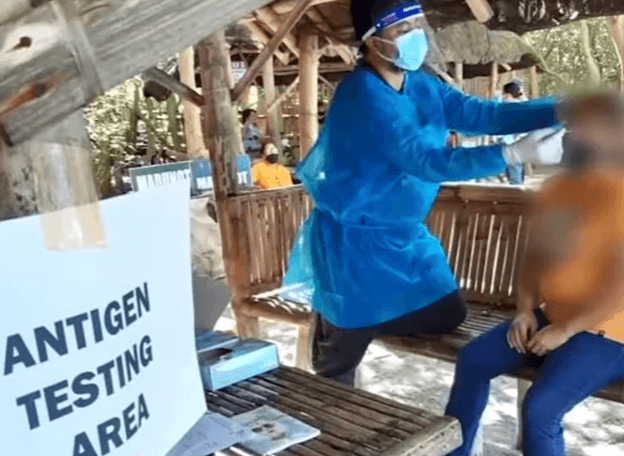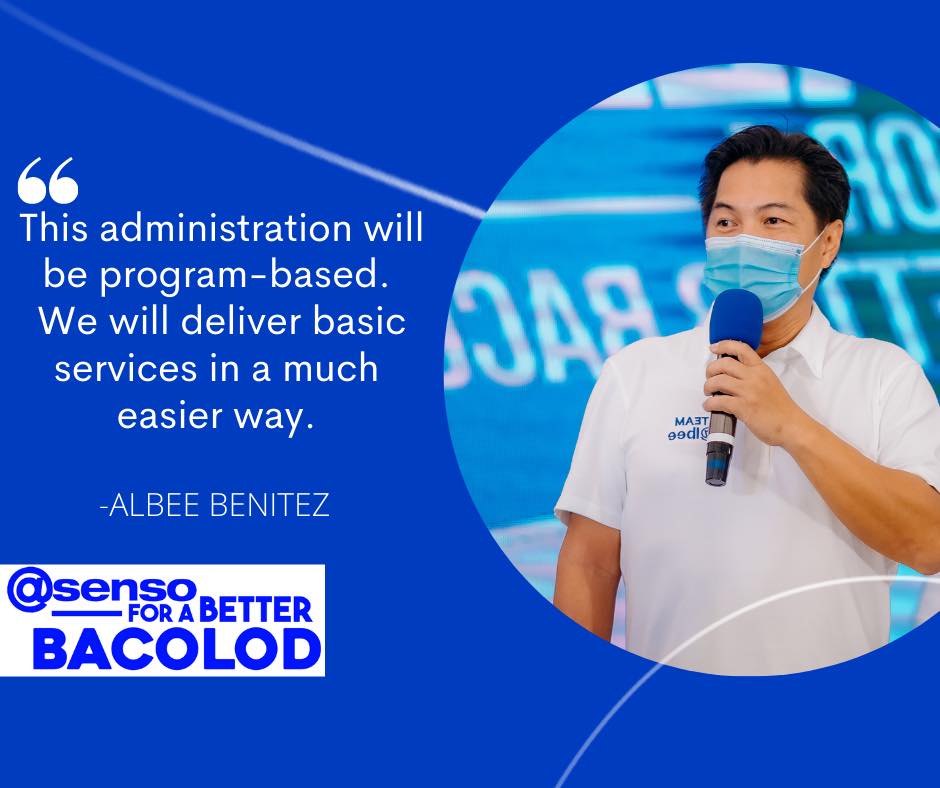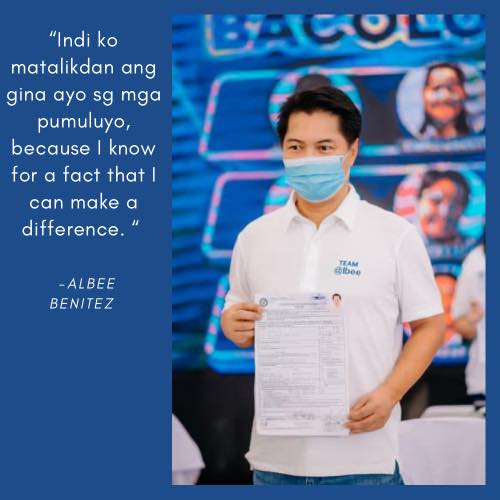Digicast Negros: Negros rapid antigen testing of 20,000 to start Oct. 9
Digicast Negros
October 8, 2021
by Carla P. Gomez

The Negros Occidental provincial government will kick off its rapid antigen testing of 20,000 Negrenses on Saturday, October 9, to speed up the contact tracing efforts in selected cities and municipalities with the highest number of COVID-19 cases, Provincial Administrator Rayfrando Diaz said Thursday, October 7.
The ten initial areas to be covered by the rapid antigen testing are La Carlota City, Talisay City, Himamaylan City, Kabankalan City, Silay City, Pulupandan, Binalbagan, Toboso, San Enrique, and Salvador Benedicto.
The cities and municipalities are determined based on the COVID-19 daily attack rates for the past seven days.
Negros Occidental had 4,300 active COVID-19 cases and seven new deaths on Thursday, the Provincial Incident Management Team reported.
Gov. Eugenio Jose Lacson has issued the guidelines on the rollout and use of rapid antigen testing kits for the expanded contact tracing effort and early detection measures.
Local Government Secretary Eduardo Año gave the go signal for the conduct of rapid antigen tests in Negros Occidental Wednesday night, provincial consultant Alfredo Abelardo Benitez said.
Benitez called Año after Local Government Regional Director Juan Jovian Ingeniero informed the provincial government that its proposal to conduct rapid antigen tests would be referred to the Department of Health and the Health Technology Assessment Council for further study and appropriate approval.
The goal is to carry out as many tests as possible to increase the chance of detecting COVID-hit individuals who are symptomatic and asymptomatic so they can self-isolate as soon as possible, Diaz said.
The LGUs will conduct the tests with training and support from the Provincial Health Office (PHO) in coordination with the Department of Health (DOH), for licensing and accreditation. Allocation of the rapid testing kits will be at 1:10 or ten test kits per one positive case through the PHO, Diaz said.
Based on the guidelines, individuals who test positive in the rapid antigen test will be isolated and managed as COVID-19 cases but they will not be included in the daily count cases of the local government units pending the recommendation from the DOH, he added.
Positive results, however, will be encoded by the LGUs to the Antigen Test Reporting Template of a licensed or participating laboratory within 24 hours. The daily totals and initial results will be submitted daily at 4 p.m., Diaz said
Asymptomatic close contacts who tests negative will be retested within 48 to 72 hours of initial negative result. All symptomatic close contacts will undergo same rapid antigen testing or RT-PCR upon the discretion of the local health office, Diaz said.
However, if the result of the symptomatic close contacts remain negative after the second rapid antigen test, they will be discharged after10 days of isolation or the last three days of being asymptomatic, he said.
Close contacts residing in the same household, on the other hand, will undergo rapid antigen tests and those who tested negative will be again subjected to a repeat test or RT-PCR test upon the discretion of the local health office after five days. If the result in the rapid antigen test is negative again, a retest will be done within 48 to 72 hours for confirmation, Diaz said.
Testing will also be allowed on individuals coming from areas with high positivity rate for the last seven days based on the report from the DOH-Epidemiology Bureau and people residing within closed or semi-closed institutions with presumptive outbreak. Only DOH-approved and recommended rapid antigen test kits will be used in this effort, he added.
The Provincial Incident Management Team will evaluate the effectiveness of the expanded contact tracing and early detection measures and may propose the inclusion of other areas if the need arises, Diaz said.*
Related Stories:
@senso for A BETTER BACOLOD
Ang isa sa akon mga handom para sa Bacolod.


Ako ang kapitan sg sini nga barko. Indi ini magkadto sa wala ukon sa tuo, kundi derecho sa direksyon sang pagbag-o sang gobyerno para sa kaayuhan sang Bacolodnon.


